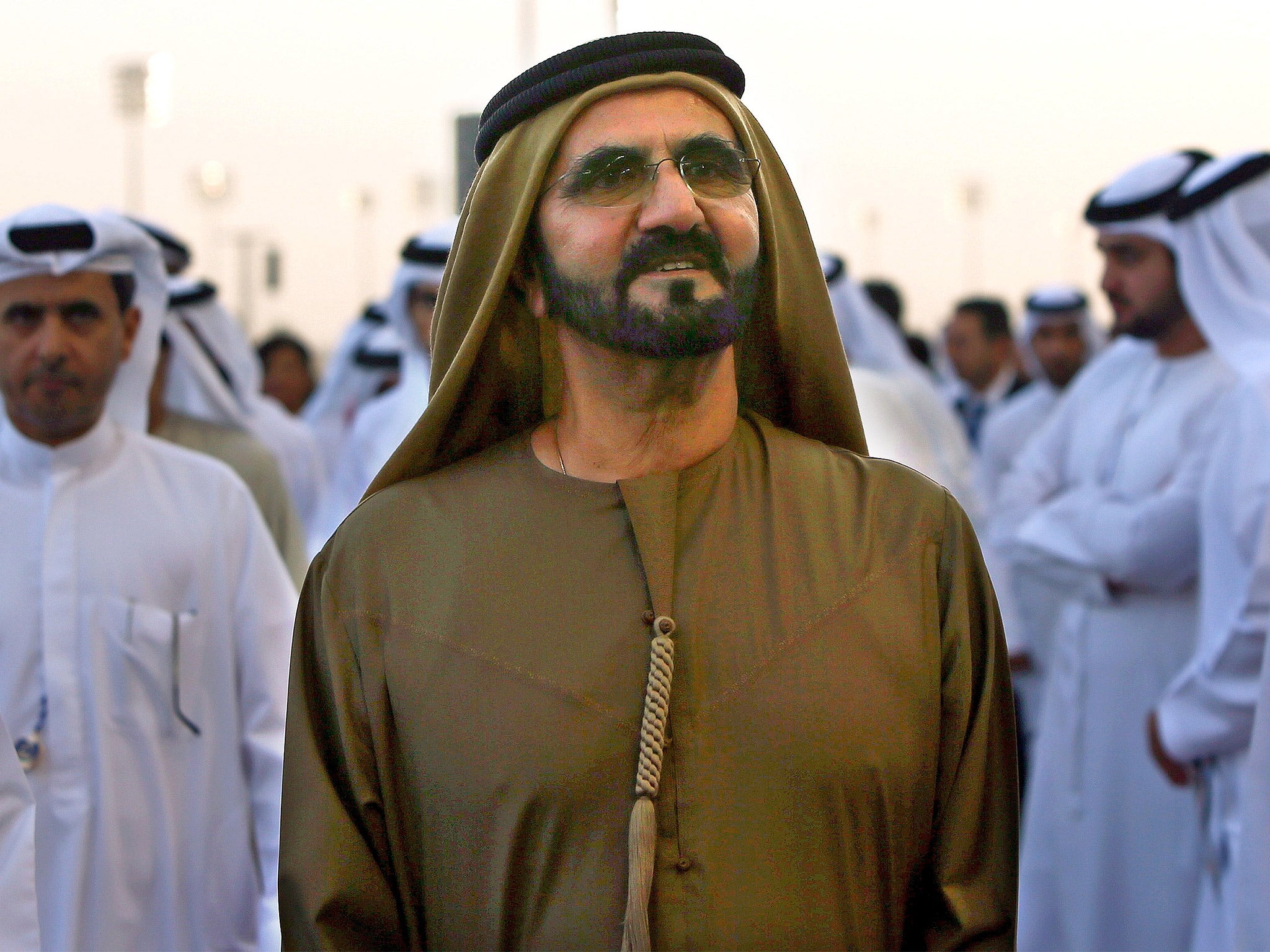UAE launches major government shake-up in bid to create new age of happiness - despite poor human rights record
World View: Oil-rich Abu Dhabi's crackdown on dissent has proved somewhat uncomfortable for Dubai’s efforts to locate itself as a tourism and business hub with a reputation for tolerance

In a region in turmoil, happiness is high on the agenda in the United Arab Emirates.
A major government shake-up, including the creation of a Happiness Ministry, comes ahead of plans for significant economic reforms in the federation of seven small emirates which includes Dubai and Abu Dhabi.
Unveiling the changes in a three-hour “tweetathon”, the UAE vice-president and ruler of Dubai, Sheikh Mohammed bin Rashid al-Maktoum, described his desire for “a young and flexible government” that would, he said, fulfil “our youth’s aspirations and achieve our people’s ambitions”.
Happiness, according to Dr Suad Al Marzooqi of UAE University’s department of psychology, is high on the Sheikh’s agenda. She described the Happiness Ministry as “an umbrella position for all the ministries, as you need every minister in the government to search for the people’s happiness”.
The ministry is one of only three in the world. The others are in Bhutan and Venezuela. Ironically, a Saudi-led policy, supported by the UAE, to flood the world market with cheap oil has brought Venezuela to the edge of economic ruin and presumably left its Happiness Minister struggling with a lot of very unhappy citizens. The sheikh also announced the creation of a youth council that will advise the government and be led by a female cabinet minister who must be no older than 22. No reason was given for the age limit.
Sheikh Mohammed also indicated that he was considering the privatisation of “most government services”. Critics will argue that privatisation may not open up the country’s economy but rather will benefit the ruling families and those business elites with close ties to them.
The creation of the Tolerance Ministry has raised eyebrows given the UAE’s poor human rights record. Noting the harsh treatment of activists, Shazia Arshad of the International Campaign for Freedom in the UAE, dismissed Sheikh Mohammed’s claims that a Ministry of Tolerance would change the country for the better: “The intolerant attitude of the UAE authorities to the calls for reform have led to an increasing number of detentions, trials, deportations and enforced disappearances.”
She cited the case of a prominent economist, Dr Nasser bin Ghaith, who had supported calls for political reform in the UAE.
The emphasis on tolerance comes at a time when other Gulf states, and particularly Saudi Arabia, are ratcheting up attacks on Shia Iran. It is a statement of intent from Dubai that it has a more nuanced approach, one that seeks to place itself at the heart of new trade opportunities with Iran.
By announcing the shake-up via Twitter, Sheikh Mohammed has restaked his claim to be the strongest and most appealing Emirati leader. It was a position that was dented when Dubai had to be bailed out in 2009 by Abu Dhabi after the global property crash left Sheikh Mohammed’s ambitions in urgent need of cash.
The two states have long competed for ascendancy, with oil-rich Abu Dhabi leading a crackdown on dissent. That has proved somewhat uncomfortable for Dubai’s efforts to locate itself as a Middle East tourism and business hub with a reputation for tolerance, one that has been carefully cultivated with lavish spending on public relations campaigns.
Join our commenting forum
Join thought-provoking conversations, follow other Independent readers and see their replies
Comments